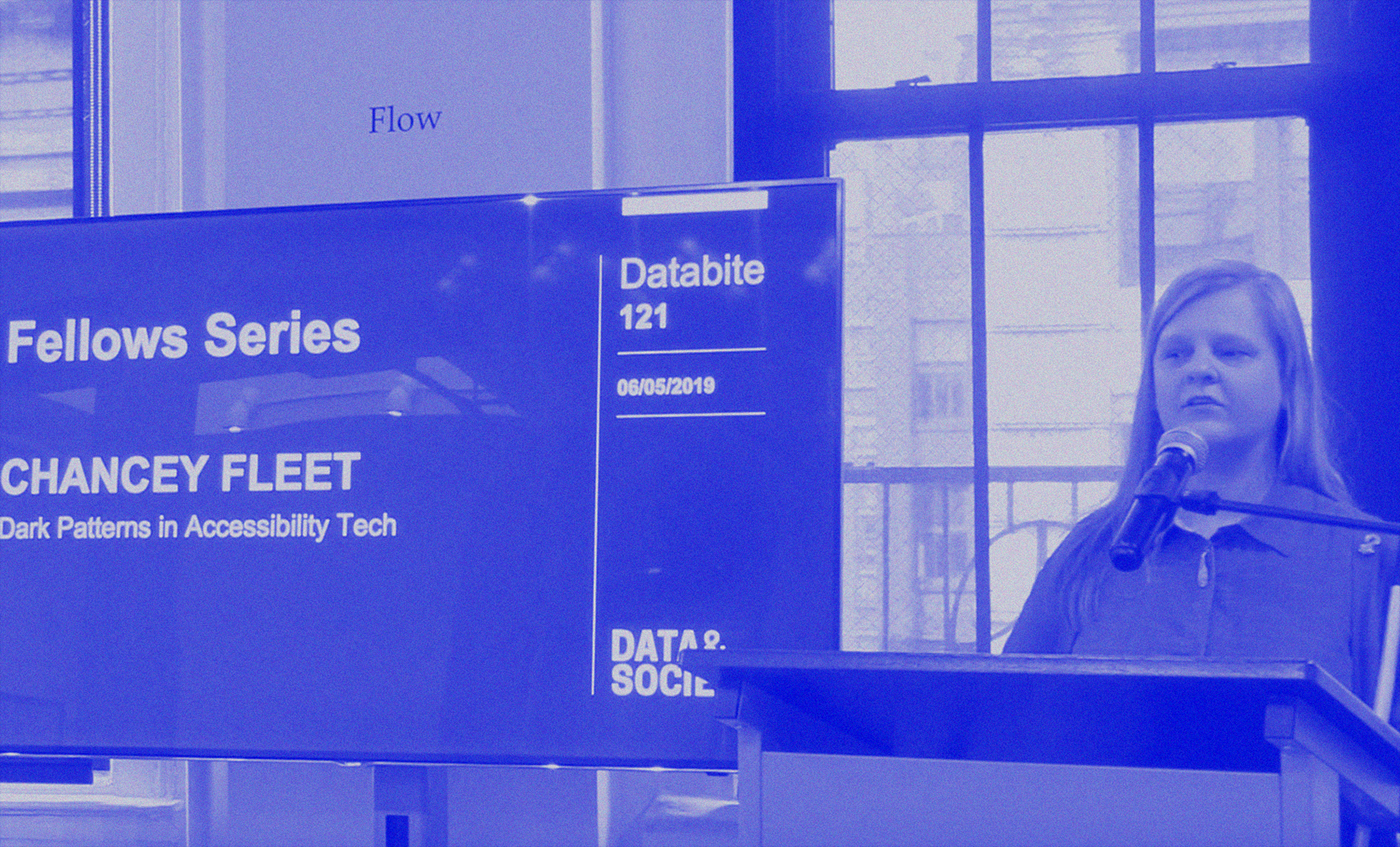In her talk, Data & Society Fellow Chancey Fleet describes “the state of non-visual access to everyday digital interactions” as an area which deeply needs and deserves more attention and exploration by those working in tech. Such “encoded inhospitality” is not intended to cause harm. Rather, most of these “dark patterns” within our everyday technology are developed and designed without insight from the blind community.
Fleet refers to such content as “ghost written” code. While this code is rarely intentionally hostile, it nevertheless routinely creates friction and barriers for users. “Ghost written reflects the perception that accessibility features are for disabled people, rather than the reality that we share one ecosystem. They are for everyone.”
Data & Society Director of Research Sareeta Amrute moderates the conversation.
Data & Society’s Fellows Talks is a three-part Databite series showcasing our 2018-2019 fellows cohort. Each talk features 2-3 fellows speaking about their work, wide-ranging interdisciplinary connections, and a few of the provocative questions that have emerged this year.
Chancey Fleet, a Brooklyn-based accessibility advocate, coordinates technology education programs at the New York Public Library’s Andrew Heiskell Braille and Talking Book Library. Chancey was recognized as a 2017 Library Journal Mover and Shaker. She writes and presents to disability rights groups, policy-makers, and professionals about the intersections of disability and technology. During her fellowship, she advanced public understanding of and explored best practices for visual interpreter services as well as other technologies for accessibility whose implications resonate with the broader global conversations about digital equity, data ethics, and privacy. She proudly serves as the Vice President of the National Federation of the Blind of New York.
About Databites
Data & Society’s “Databites” speaker series presents timely conversations about the purpose and power of technology, bridging our interdisciplinary research with broader public conversations about the societal implications of data and automation.


